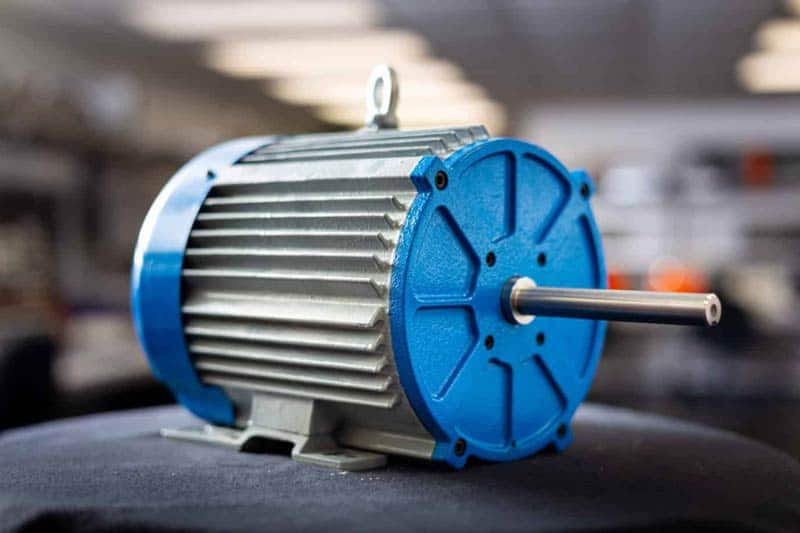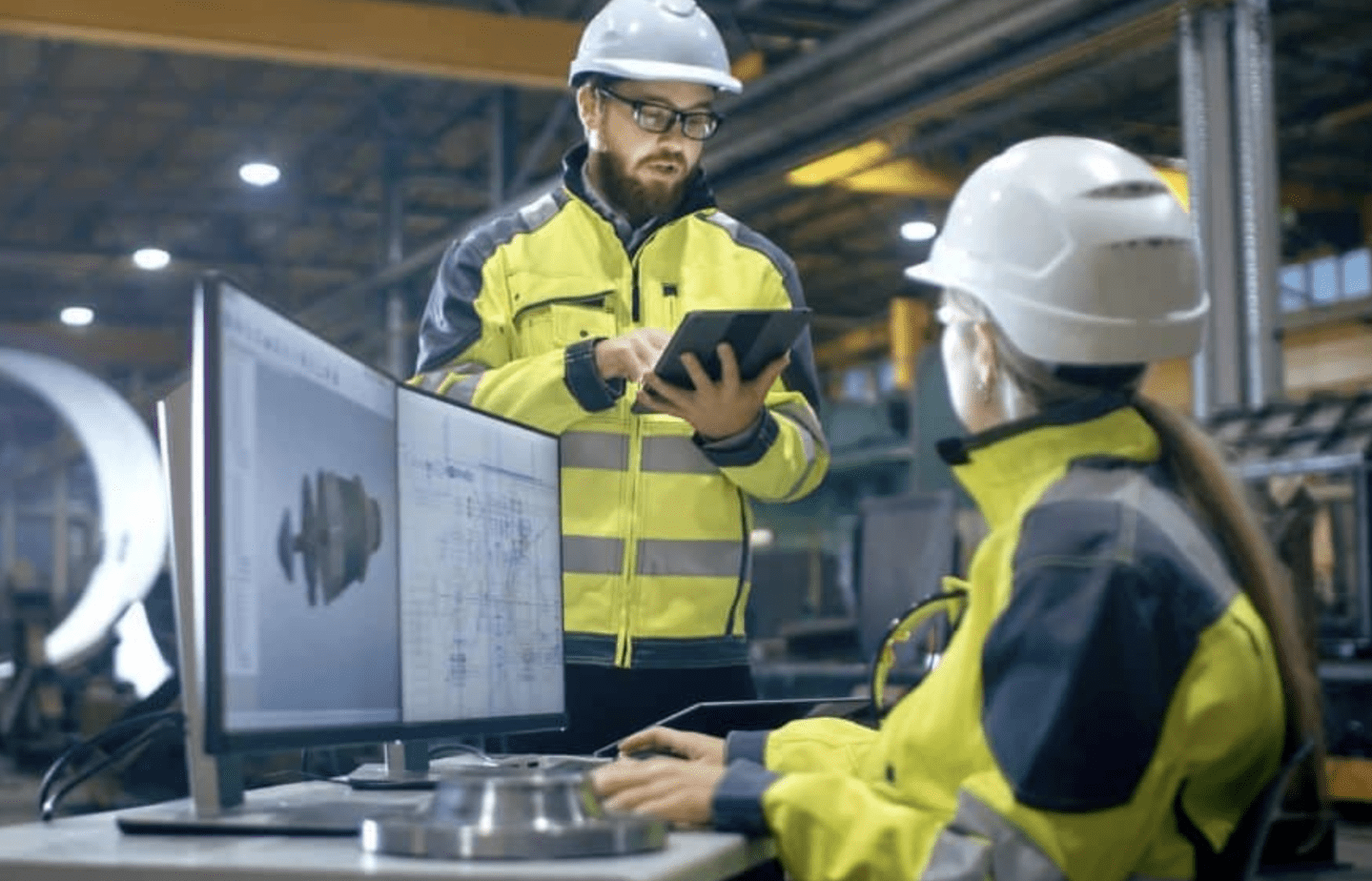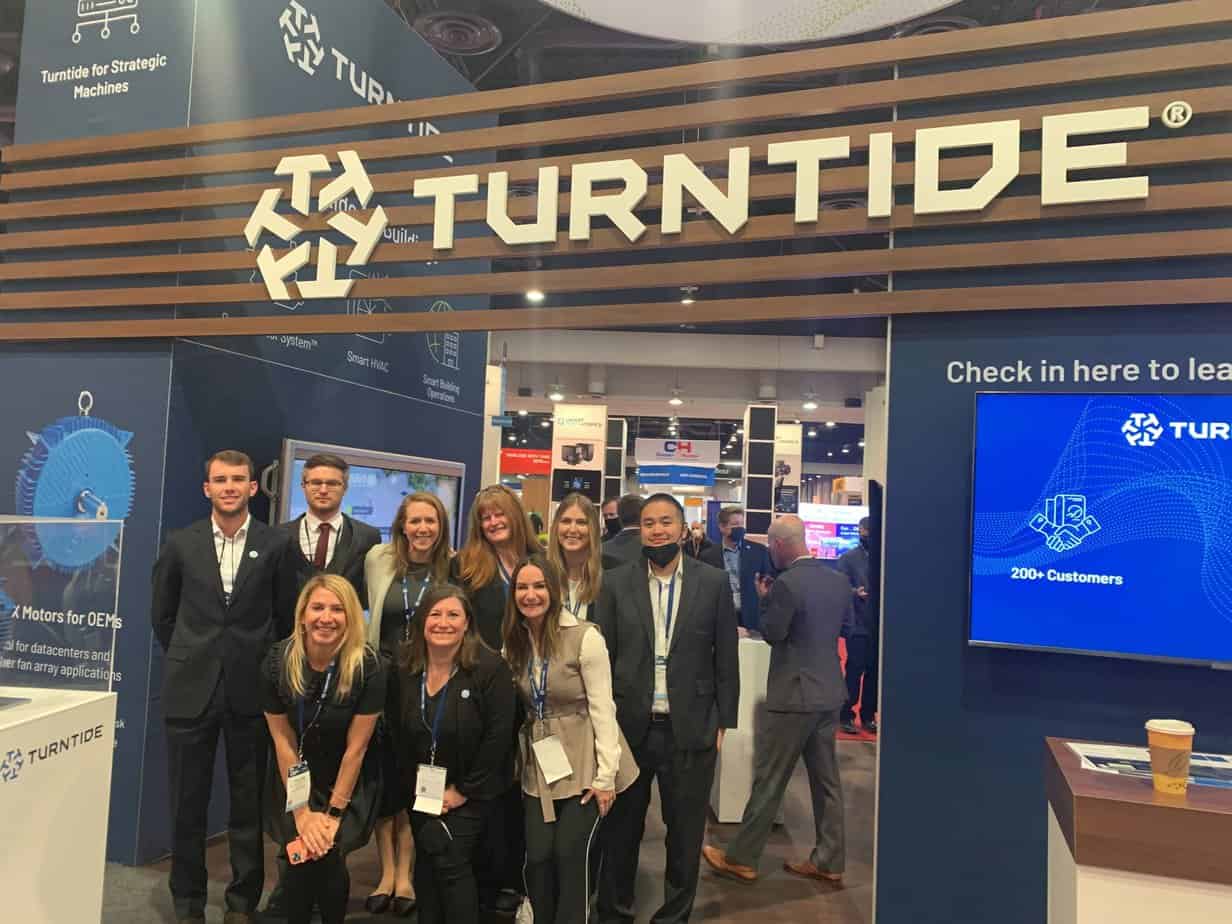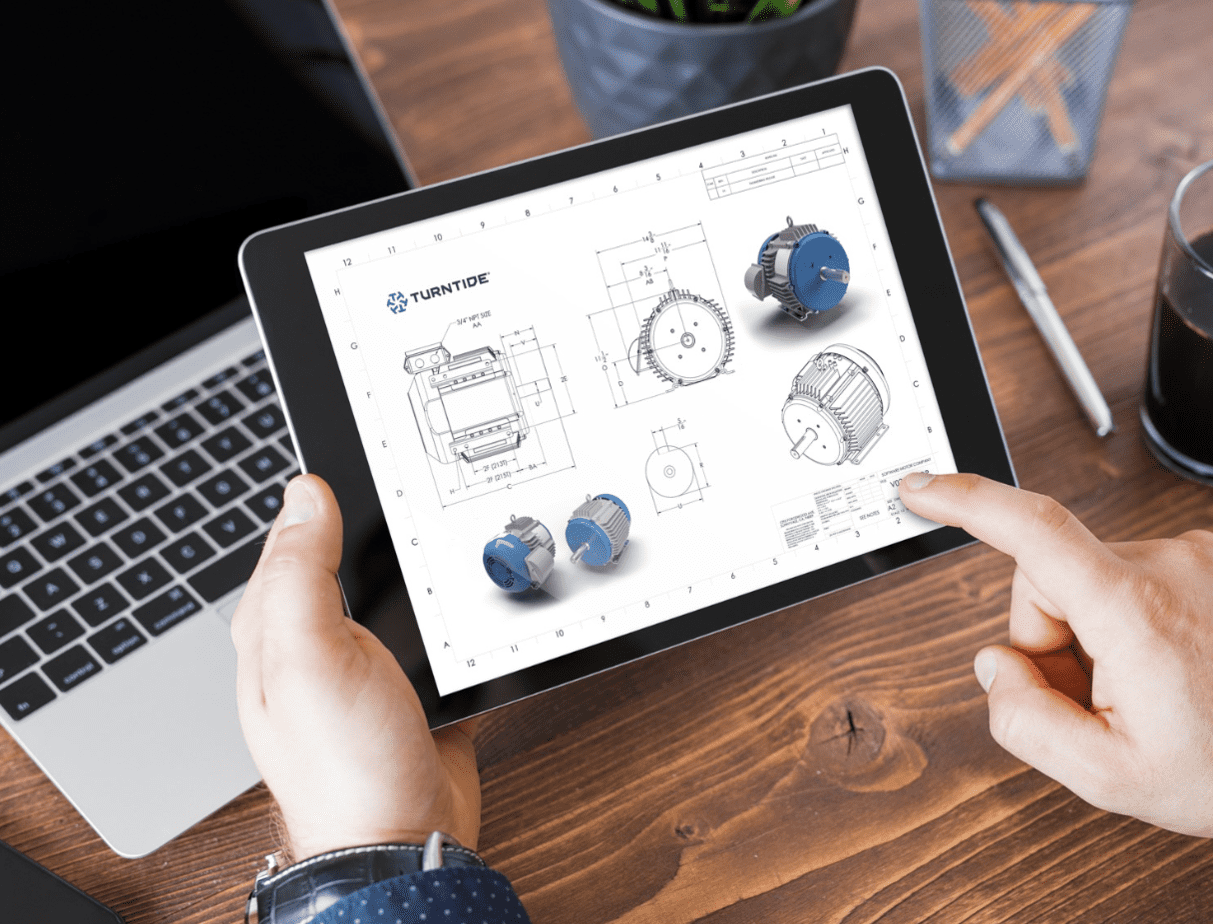Rachel Konrad
Episode Summary
Consumers are demanding more ethical business practices from their favorite brands. As a result, more traditional companies are leaning into sustainability-focused messaging to attract and retain customers, preventing truly innovative companies from breaking through the noise.
But that’s not all bad. According to Rachel Konrad, Chief Brand Officer at The Production Board and former Head of Communications at Tesla and Impossible Foods, successful brands can’t rely solely on sustainable messaging anyway. First and foremost, consumers want new products to improve their lives. Only then will a truly sustainable product inspire the advocates who can supercharge your brand.
In this episode of Net Zero Action Heroes, Rachel explains how to successfully market sustainable products, shares a few tips and tricks from her days at Tesla and Impossible Foods, and unveils how disruptive new companies are helping to turn the tide on climate change.

Before joining The Production Board, Rachel was Head of Communications at Tesla and Chief Communications Officer at Impossible Foods, helping both companies launch their very first products en route to becoming household names around the world.
Key Insights
Sustainable brands ignite passion and advocacy with their customer base. Brands like Tesla and Impossible Foods have capitalized on this dynamic, encouraging other companies to reprioritize sustainability within their own organization. “Sustainability is really the good stuff, right? That’s where you get the real advocacy, the real evangelicals, the people who are willing to advocate for your brand and tell their family and get their parents to buy it and, you know, who will order it and talk about quite a bit.”
But sustainability alone won’t sell your product. At the end of the day, consumers still demand quality above all else. “You have to market your product and your company as a superior upgrade to anything that’s ever been on the market. What you really want to do is market a product as being better experience and a total upgrade to your life. If it is, then the fact that it’s sustainable gives you this righteous indignation, this incredible brand loyalty and intellectual depth that actually makes it very sticky.”
Sustainability marketing can focus on the positive. Despite the alarming speed and consequences of climate change, humanity still has the potential to turn the ship around. “There is great reason to believe that humans can solve pretty much anything that’s come their way, and that includes climate change, biodiversity collapse, and our public health crisis. I think we have a lot of work to do, and there’s no question in my mind that we need to deploy all the weapons, all of the arrows in the quiver on this one, including technology, science, capitalism, frankly, entrepreneurship.”
Episode Highlights
[19:43] “If you aren’t looking at the major shift in our economy that is prioritizing and rewarding companies that are meaningfully decarbonizing Earth, then you aren’t paying attention.”
[10:00] “We need to acknowledge that the only way to make a real, positive impact on climate change is for companies to displace or even eliminate the old systems of production and consumption.”
[12:10] “The reality is that very few people will buy a product just because it’s sustainable. Most of us really demand and expect and deserve an upgrade in our lives. That’s just human nature. We want more. If your product is sustainable, that’s how you get the real advocacy and the real evangelists who are willing to advocate for your brand. But in order to play in that arena, you also need to establish that you have a killer product.”
Transcript
[00:00:41] Chris Pullam: Hello and welcome to Net Zero Action Heroes. My name is Chris Pullam, and this episode is brought to you by Turntide Technologies, an award-winning sustainability company. Today, our guest is Rachel Konrad, the Chief Brand Officer at The Production Board, which invests at the intersection of food, agriculture, and technology.
[00:00:56] Before that, she was Head of Communications at Tesla and Chief Communications Officer at Impossible Foods, helping both companies launch their very first products. Rachel, thanks for joining me today.
[00:01:06] Rachel Konrad: Thank you, Chris. This is super fun. And thank you for all of the work that you do to promote companies that are highly disruptive and, you know, getting rid of carbon. Thank you.
[00:01:16] Chris Pullam: Perfect. And thank you so much for advancing the brands for some of these very disruptive companies. So, I wanted to start our conversation today by sharing an excerpt from your LinkedIn post a few months ago, when you announced that you were joining The Production Board.
[00:01:35] So, these are all Rachel’s words to anyone who’s listening. Open quote, “We have less than 10 years to prevent an ecological catastrophe, and I want to spend my next decade doing everything in my power to avert a dystopian meltdown of civilization as we know it,” end quote. That’s a pretty powerful statement.
[00:01:54] So, with that context, Rachel, what has driven you to dedicate so much of your professional career to mission-driven companies?
[00:02:01] Rachel Konrad: Whew. Well, that’s a big, loaded question. You know, a lot of it, you kind of have to understand my roots. I grew up in Detroit in the 1970s and 1980s, which was going through its own dystopian meltdown, let’s say, at the time. There was this thing in 1973 called the Yom Kippur War in Israel, which then actually resulted in OPEC oil embargoes and gasoline shortages in the Western world, and that scenario actually really caused my childhood to be economically, somewhat chaotic, right?
[00:02:30] I realized very quickly when my dad was getting furloughed and laid off, and The Big Three were getting buyouts, I realized way back then, even as a girl, I could never have articulated it, but I even realized back then that hitching your economic cart to a big lumbering incumbent industry was very, very dangerous, right?
[00:03:00] And it meant that you were in for a lot of, you know, roiling shocks, oil shocks or economic shocks to your family. And so I really understood at a visceral level that this is pretty dangerous. And then it was really in the 1990s when I was in college that I read this book by Al Gore, “Earth in the Balance,” and it really made me understand that we are approaching the tipping point of many tipping points in the world.
[00:04:13] And so think about this, a girl from Detroit, right? I quickly realized, “Wow. There’s a better way to do this. Electric cars don’t have to be shitty little golf carts for Florida retirement communities. They can actually be super fast, super awesome, high-torque power engines that can smoke your Lambo from 0 to 60.”
[00:04:35] And it really made me realize, you know, instead of being a journalist, which is what I was at the time, maybe I should, you know, go inside companies and really start working for highly disruptive, potentially disruptive companies and that maybe could force the incumbent industries to change.
[00:05:17] Chris Pullam: Yeah. And I mean, the manifestation for that post was that you were starting at The Production Board, and I know you’ve only been there for a few months, but with that in mind, did you make the right decision?
[00:05:26] Rachel Konrad: Absolutely. The Production Board is super fun. I have amazing colleagues. By the way, shameless plug, we have more than 100 openings at The Production Board and all of the portfolio companies, so if you are somebody who wants to really take a front-row seat and have an active role in shifting systems of production from vile, gross polluting systems right now that are spewing carbon and methane into the environment and making our planet unlivable and transform those systems into, you know, decentralized, clean decarbonized systems, then please take a look and apply. This is an incredibly mission-oriented juggernaut, and I would love more company. So yeah, it’s been great.
[00:06:08] Chris Pullam: Yeah. And I’d highly recommend to anyone listening that they do check out those jobs. I was actually looking at them earlier this morning, and there’s some really cool opportunities for some really cool businesses there.
[00:06:18] Rachel Konrad: There’s basically two gigantic pieces of our economy, if you want to break it down into the most simple elements. One is our systems of production for making energy, which is then used to make stuff that we consume.
[00:06:30] So, there’s energy production to fuel the consumption of stuff, which includes calories, which then powers us to make more systems of energy, right? It’s like in this super loop. And both of those systems are basically in late-stage breakdown, right? We can no longer continue to make pretty much anything in our lives the same way we did in the 1800s, when the industrial revolution started this whole system.
[00:06:52] You know, one great example, again, it’s in this virtuous, I would say, like, viral feedback loop right now is the way we create beverages. Right now in the world, we create about a trillion beverage containers per year using glass, plastic, and aluminum that we mined from the Earth.
[00:07:08] We bottle them in big factories that are concentrated in 10 or 20 or 50 big industrial centers around the world, and we pack those containers mostly with water because 99% of what we drink is actually water. And then we sprinkle in a little sugar, a little alcohol, alpha ethanol, little flavor components and then we put those beverages that have been made from, you know, smokestack industries on ships to ship them to Costco and Kroger and Safeway and everywhere else. Then we drive our mostly internal combustion engine vehicles to Safeway or wherever they’ve kept them in refrigerated aisles.
[00:07:41] And then we bring them back home. We store them, usually in our spare beer fridge in America, right, until we drink them, and then at best, about 20% of us recycle those bottles. So, then they are trashed in a landfill to create the global trash crisis.
[00:07:56] That is insane. That is the definition of absurdity, asininity, unsustainability, and lunacy, honestly. So, one of The Production Board’s companies is called Cana, and Cana is basically making a Star Trek replicator device, a beautiful device that you can fit on your countertop and you take the tap water that’s widely abundant in all of the West and you can make literally hundreds of thousands of different beverages because 99% of what you drink is water.
[00:08:23] This coffee that I’m drinking here is water, mostly, and you can then make anything you want in a decentralized, low-carbon kind of environment. You could have all the choice, actually, vastly more choice than I can get in my spare beer fridge, but it’s on your countertop, and it’s a clean, you know, low-carbon, low-footprint kind of scenario.
[00:08:42] That is a really good example of what The Production Board does. I mentioned Cana because they just came out of stealth mode, but there’s, you know, a dozen or more companies in the portfolio, and they are all just as radically disruptive, awesome, and audacious. They’re all pretty ballsy bets.
[00:09:01] Chris Pullam: Well, the sustainability aspect of this company is obvious. And the more and more you’re talking about the market value, the profitability of the company seems pretty obvious as well. And taking a look at all of the companies in your portfolio, they all seem to sit at this really interesting cross of sustainability and profit.
[00:09:22] I am curious, though, do your investors value the planet-saving potential of these companies or are they simply attracted to a sound investment?
[00:09:30] Rachel Konrad: Yeah. I mean, The Production Board’s investors include BlackRock, Baillie Gifford, Google Ventures. There is an expectation that The Production Board’s portfolio businesses will create a minimum of 10X,but ideally, you know, 100 or 1,000X increase in productivity from the incumbent status quo. That’s precisely why you would invest in The Production Board itself or any of its portfolio companies. These are not nonprofits. These are not government multilateral agreements or anything like that.
[00:09:36] And the reason is because those don’t work, you know? Unfortunately, as well-intentioned as protestors are and nonprofits and government multilateral treaties and the United Nations and others, you know, for the last 50 years, all we’ve seen is an increase in global temperatures and increase in sea levels, more and more eutrophication death zones in the oceans.
[00:10:00] We actually need to acknowledge that the forces that have had any impact in, you know, halting, slowing, maybe even reversing this late-stage clusterfuck that we’re approaching is, frankly, companies like Tesla, companies like Impossible Foods, and coming soon, companies like Cana, that are actually displacing, eliminating demand for the old systems of production, the old systems of consumption.
[00:10:28] And they are doing it not by being warm and fuzzy, you know, waving a green flag and greenwashing bullshit, but they’re doing it by creating a fundamentally better product and appealing to people on two levels, both as a raw consumer who wants the best possible thing, who wants more, who desires more and better, but also giving you that green halo.
[00:10:49] I’m not sure if you’ve ever driven a Tesla Roadster, but I mean, it’s by far the best car on the market at any price point. And the fact that I happen to be able to charge it purely from my solar panels on my roof is actually icing on the cake, but I buy the car because it’s the safest car on the market.
[00:11:12] I love the UI, the user interface in my Model 3. It has the best 0 to 60 acceleration. I love the torque and, frankly, now I love autopilot. So, that’s why I bought it. And the fact thatI’m living better and the fact that I’m driving it on zero emissions, solar power is just the icing on the cake. That’s the brand halo.
[00:11:26] Chris Pullam: People are coming around to that type of thinking, but a lot of peoplestill just don’t realize that. Why do you think it’s such a heavy lift to convince people that sustainability can also be better for them, as well, and not just the planet?
[00:11:45] Rachel Konrad: Okay. So, there’s a widespread myth out there that people really want sustainable products, right? I mean, there are a few of us, right? I’m one of them, I’m one of these freakish deviants. I only buy used clothes, right? Like, literally everything I buy is second-hand. We have a zero-carbon kind home that’s purely powered by solar panels.
[00:12:10] That’s how we charge our Tesla. It’s also how we charge our spare beer fridge, unfortunately, that came with the house. But, you know, the reality is there are very few people like that. These are sort of early adopters in the vanguard, and there’s, frankly, not a lot of rich hippies who will do things just for the sake of the planet and pay a premium. Most of us really demand and expect and deserve an upgrade in their lives. Human civilization, human nature, is such that we want more.
[00:12:38] So if you’re marketing or trying to brand your product just as a sustainable company and that’s your first order brand intention, you’re fucked, you know? There’s just so few people who want those kinds of products.
[00:13:00] You might get traction with, like I said, a tiny group of rich hippies, but especially if you’re asking them to pay a price premium and sacrifice or compromise anywhere in the value proposition, you are not going to get any traction. You’re going to have no impact. You’re never going to have mainstream mass market.
[00:13:22] Chris Pullam: So, let’s consider that a company, you know, does have the best product on the market. Arethere any benefits to aligning your brand with your customers and values?
[00:13:30] Rachel Konrad: Absolutely. You have to market your product and your company as a superior upgrade to anything that’s ever been on the market. What you really want to do is market a product as being better experience and a total upgrade to your life.
[00:13:42] If it is, then the fact that it’s sustainable, I call that, you know, one-click down, right? That kind of gives you this righteous indignation, this incredible brand loyalty and intellectual depth that actually makes it very sticky. So, I do not work for Impossible Foods anymore. I worked there for five years and I learned something really important there that I think is probably germane to this question.
[00:13:59] We would take brand studies at almost every quarter, and in 2016, when I first joined, we discovered something really interesting. We asked, this is before the company, by the way, was even out of stealth mode. So, before the product was available, we asked consumers: “What would it take for you to buy and embrace a plant-based burger over the animal ag analog?”
[00:14:12] And they basically said, “The number one thing, number one is taste.” It has to be delicious, at least, maybe not exactly the same, but at least as delicious and likable as the thing that it replaces. Number two, it has to be nutritious. I will not buy a product for me or my family, my kids, whatever, unless it has similar amounts of protein and is at least as nutritious as what it replaces,” which, by the way, for ground beef from cows is like an extremely low bar.
[00:14:29] And then numbers 3, 4, 5, 6, 7, 8, 9, 10 of the “What would drive a consumer to buy this product?” Back in 2016, it was literally, like, ethical and religious restrictions, dietary restrictions around cholesterol, animal rights, like, all these different things, this sort of bucket of additional things and, you know, numbers 11 and 12 were related to sustainability. At the time, in 2016, virtually no one made the connection between plate and planet, as we call it. By 2019, we were still taking the same study, and we asked people, “What would drive you to purchase an Impossible Burger?” Number one, guess what it was? Taste. It had to be at least as delicious. Number two. What do you think?
[00:14:48] Chris Pullam: I’ll go with sustainability now.
[00:14:52] Rachel Konrad: No, it was still nutritious. Number three, number three was sustainable, right? So, there became this awareness of the plate-to-planet connection. But if you don’t have the bonafides to prove out that delicious and nutritious piece, you can’t even play in the sustainability arena, right?
[00:15:08] Now, it turns out when you dive deeper into these studies, and this is very consistent for a lot of different companies that I’ve looked at, one of the interesting things is that while nutritious and delicious in the case of food, is, like, table stakes. You have to have that. Sustainability is really the good stuff, right? That’s where you get the real advocacy, the real evangelicals, the people who are willing to advocate for your brand and tell their family and get their parents to buy it and, you know, who will order it and talk about quite a bit.
[00:15:42] So, when it comes to this specific marketing category, a very powerful marketing category of influencers, sustainability is really, really important. However, you only get to play in that arena, you only get to play in the mainstream media headlines and the United Nations conferences and the World Economic Forum and all that kind of stuff if you have these number one and number two items, and that’s different for every product. For Impossible, it’s delicious and nutritious. For Tesla, it’s faster and safer, right? The fact that it can then also be charged by solar panels, awesome.
[00:16:16] Faster, safer, sustainable. That’s the golden ticket. But if you don’t have all three, then you really can’t play.
[00:16:24] Chris Pullam: That’s really interesting. It sounds like you can’t justtake sustainability and wrap it around your product and it’s going to fly off the shelf. There’s, obviously, so much more tht goes into it, and it’s still about the product at the end of the day.
[00:16:41] Rachel Konrad: Ultimately, it’s about providing a better product or service than the one it replaces.
[00:16:46] Chris Pullam: So, I wanted to pick your brain on, you know, if you’re going to be marketing sustainability, what sort of tone you should take. Despite all the urgency around climate change and food scarcity, I noticed that The Production Board’s messaging on its website is largely optimistic.
[00:16:59] For example, the very first words that appear on your website are, “We aim to re-imagine Earth, creating a better home for all of us.” So, while working with a subject matter that is so alarming, what is the value in taking an optimistic and encouraging position?
[00:17:18] Rachel Konrad: It was really based on this notion that human civilization has gone through massive positive iterative cycles in technology and science to transform the human condition, right? You know, 150 years ago, the average human barely lived to 40. Now, in America, it’s 80 and, realistically, someone who is born today might live to be 150 or 200 years old, who knows, based on advances in science and technology.
[00:17:46] And the average GDP has gone up, I don’t know, five or six X just in my lifetime. So, there is great reason to believe that humans can solve pretty much anything that’s come their way, and that includes climate change, biodiversity collapse, and our public health crisis. I think we have a lot of work to do, and there’s no question in my mind that we need to deploy all the weapons, all of the arrows in the quiver on this one, including technology, science, capitalism, frankly, entrepreneurship.
[00:18:21] But, I think we can do it, and we have no reason to believe that we can’t.
[00:18:26] Chris Pullam: We are coming up on time, and I like to end these interviews on a note of positivity. So, what’s one thing that has recently made you hopeful for the future?
[00:18:39] Rachel Konrad: Well, there is a lot that I’m hopeful about. I mean, I’m fundamentally quite optimistic person. I love the fact that my own kid is going to a great school, majoring in environmental science, and really wants to be part of the solution. I am profoundly optimistic when I talk to people at Stanford or other schools, they overwhelmingly are trying to go into the field of lower-carbon technologies.
[00:19:01] And when I guest lecture at the Harvard or Stanford MBA programs, it’s very clear to me that most of the students in there who are mid-career students are trying to reroute their careers toward sustainability. And then, again, let’s think about it from this perspective.
[00:19:21] The richest person in the world has a portfolio that is entirely dedicated to decarbonizing Earth and, failing that, to colonizing Mars. If that alone doesn’t make you wildly optimistic about how capitalism itself can solve Earth’s problems, then you’re simply not paying attention. You’re just not.
[00:19:43] You can choose to be all gloom and doom. I certainly could. I know it’s easy, right? But if you aren’t really looking at the major shift in our economy that is prioritizing and rewarding companies that are meaningfully decarbonizing Earth, then you are not paying attention.
[00:20:00] Chris Pullam: That’s a great note to end on. So, before I let you go, is there anywhere people can go to learn more about you or The Production Board?
[00:20:13] Rachel Konrad: Sure. If you want to ping me on LinkedIn or Twitter, you can follow me on Twitter. That would be great. Again, I would really encourage people to look at The Production Board’s job openings, super innovative companies. We just talked about one of them, but there’s 12 or more in the portfolio. They’re all hiring. They’re all amazing companies. And feel free to ping me. I would love to chat.
[00:20:52] Chris Pullam Well, Rachel, thanks again for everything you’re doing to make our world more sustainable. You’ve been a fantastic addition to Net Zero Action Heroes. It was great chatting with you.






